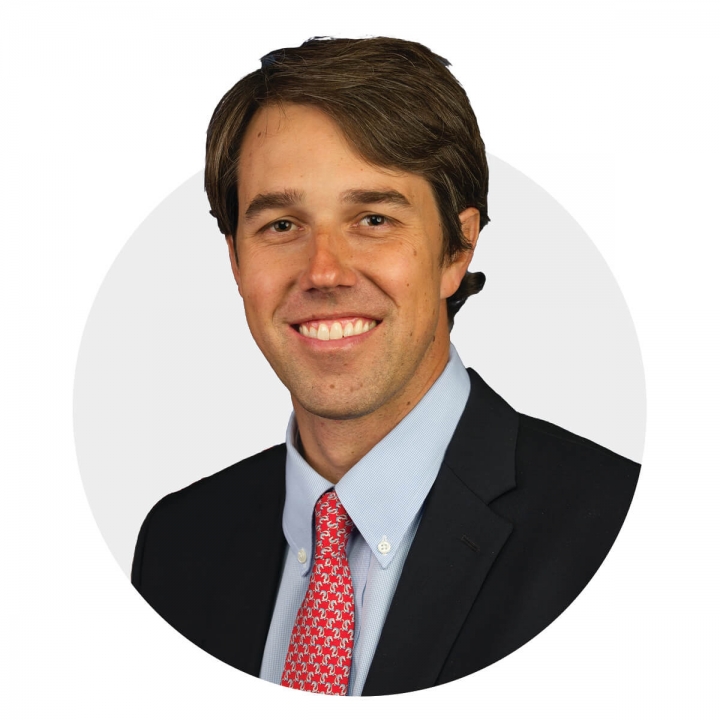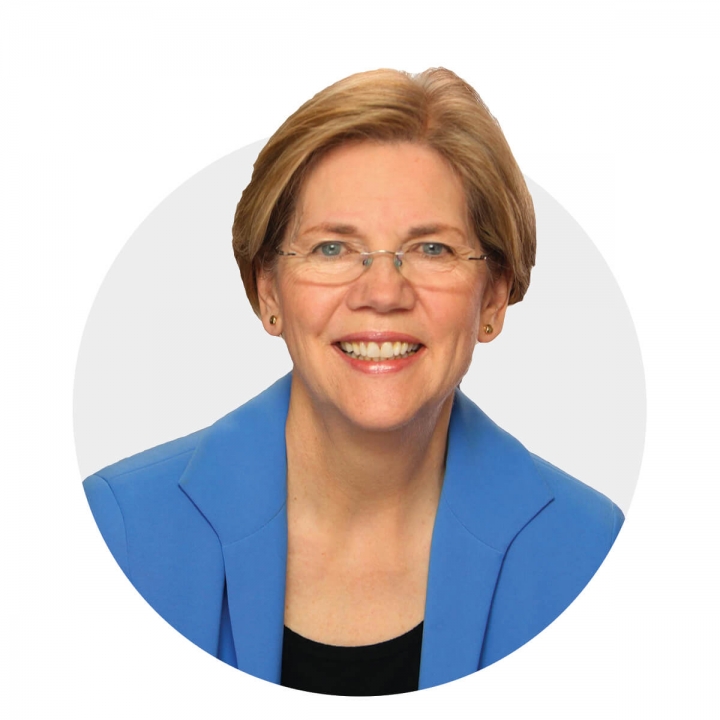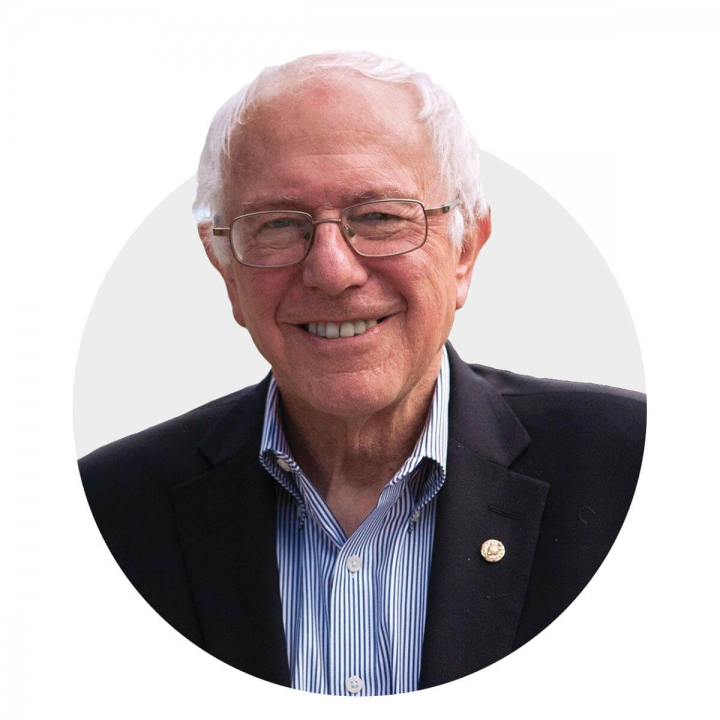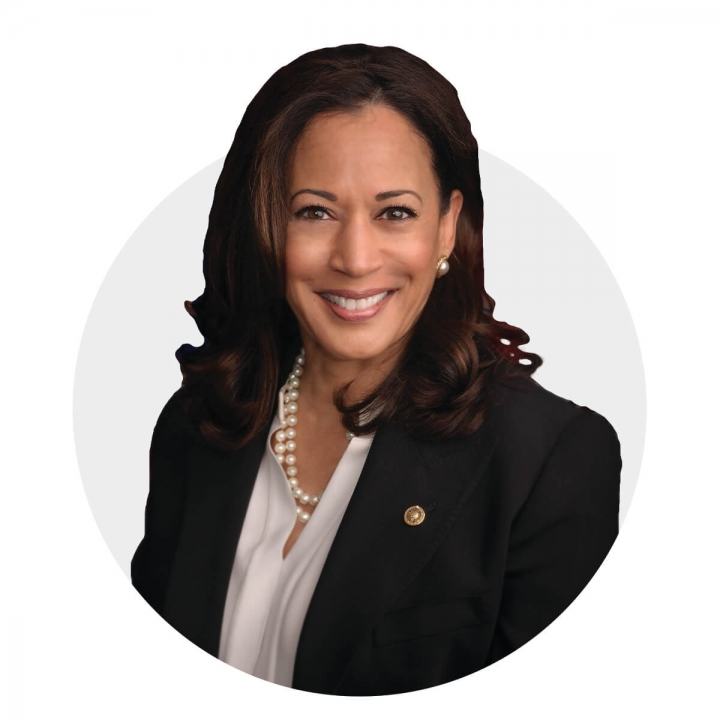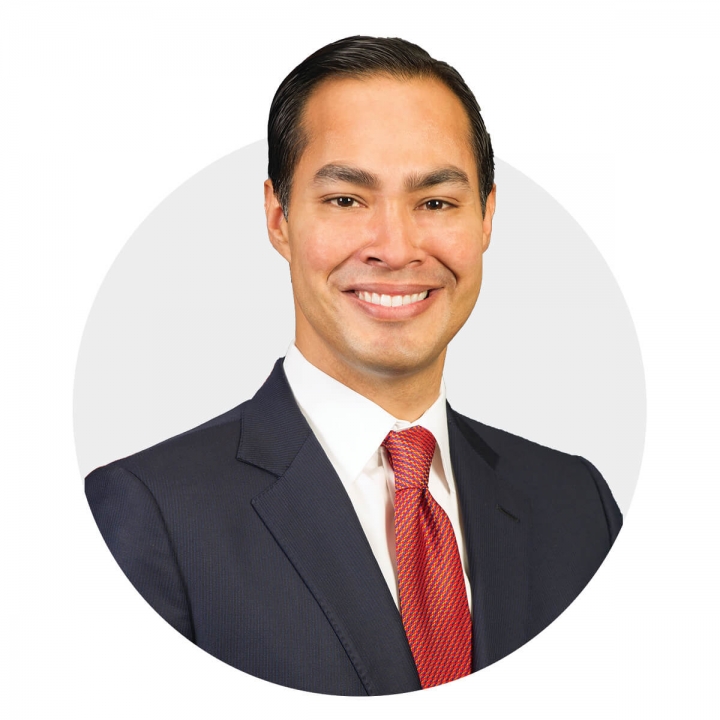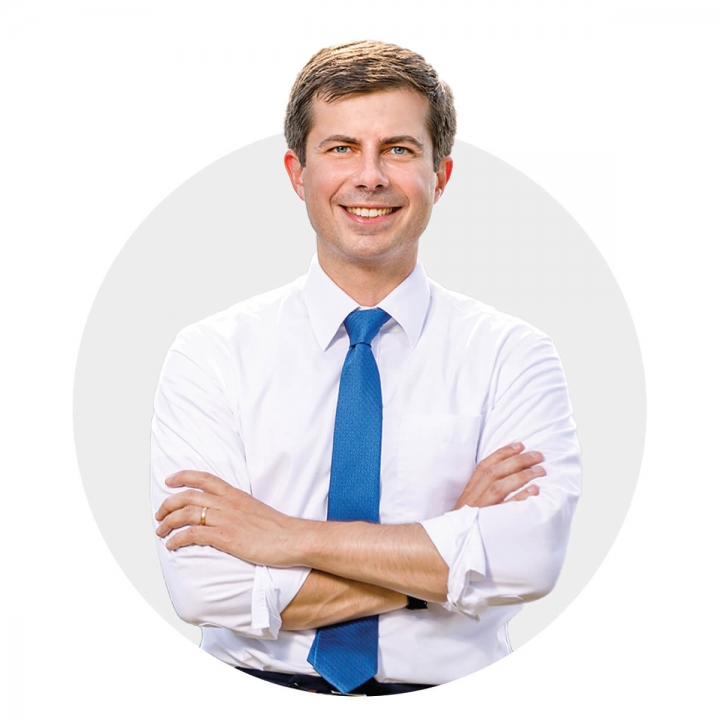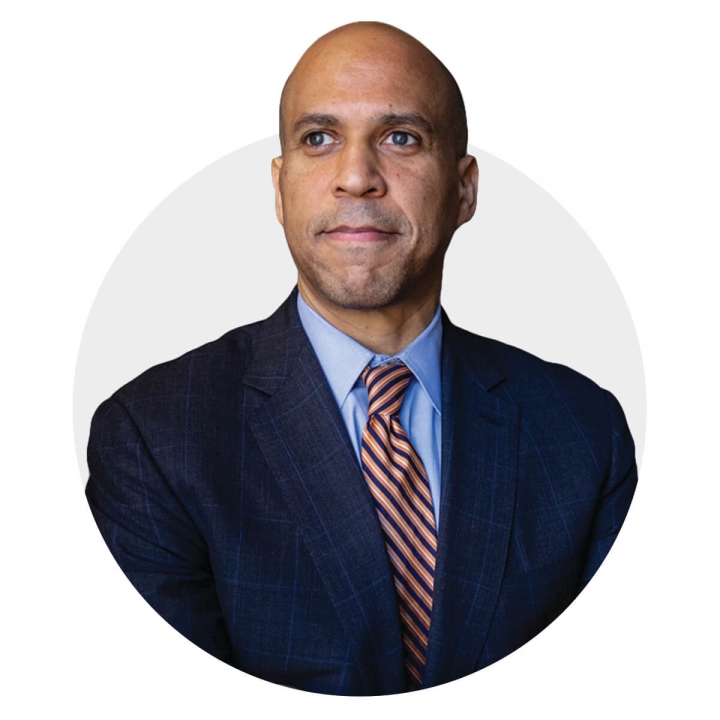Drug Decriminalization
Each year, there are more than 1.6 million drug arrests in the United States. More than 85% of these arrests are for possession only, and many more are for minor selling and distribution violations. Twenty-two states have decriminalized the possession of small amounts of marijuana. Other jurisdictions are experimenting with de facto decriminalization through Law Enforcement Assisted Diversion (LEAD) programs. LEAD directs people to drug treatment or other supportive services instead of arresting and booking them for certain drug law violations, including possession and low-level sales. Drug decriminalization (of all drugs, not just marijuana) eliminates criminal penalties for drug use and possession; possession of equipment used to introduce drugs into the human body (such as syringes); and low-level drug sales.
There are a number of benefits to drug decriminalization, including fiscal savings as the result of reducing prison and jail costs, as well as prison and jail population sizes; and law enforcement resources that are increasingly available to address violent crime and other community concerns.
Decriminalization also prioritizes health and safety over punishment for people who use drugs. For those who know that “we cannot arrest our way out of this problem (drug use),” drug decriminalization is the regulatory process through which substance use is recognized as a health care issue, rather than a criminal one.
READ MORE
Tulsi Gabbard on Drug Decriminalization
Gabbard introduced the Ending Federal Marijuana Prohibition Act of 2019, which would limit the application of Federal laws to the distribution and consumption of marijuana and would remove marijuana from the list of Schedule l substances under the Controlled Substances Act.
Gabbard cosponsored the VA Medical Cannabis Research Act of 2019 to direct the Secretary of Veteran Affairs to carry out a clinical trial of the effects of cannabis on certain health outcomes of adults with chronic pain and post-traumatic stress disorder.
Gabbard co-introduced the Opioid Crisis Accountability Act of 2019, which would prohibit the illegal marketing and distribution of opioids, would create criminal liability for top company executives, would penalize drug manufacturers who illegally advertise, market, or distribute an opioid product, and would require drug makers to reimburse the country for the negative economic impact of their drugs.
Gabbard cosponsored the Marijuana Justice Act of 2019, which would economically punish states that do not legalize cannabis and continue to incarcerate or arrest people for cannabis-related offenses.
Gabbard would remove marijuana-related convictions from “otherwise law-abiding Americans.”
In 2017, Gabbard signed onto a letter to Eric Hargan, Acting Secretary at the time for the U.S. Department of Health and Human Services urging the department to allow research of medical marijuana as a pain management alternative to opioids.
When asked by an audience member at a 2019 CNN Town Hall event if Gabbard would decriminalize all drugs, Gabbard responded by saying that after with meeting with a group of men living in a substance use recovery facility in New Hampshire, she was “impressed by their strength and their resilience,” that we need to end the failed war on drugs, that she feels it is important to identify the root causes of addiction, and discussed her introduction of the Ending the Federal Marijuana Prohibition Act of 2019. CNN host ____ then asked for further detail saying, “So Congresswoman, you’re talking a lot about marijuana, but where do you draw the line on decriminalization, because one of the questions was about all drugs. What do you think about that?” Gabbard replied, “I think that the heart of her question was really recognizing that this is about addiction, not criminalization. Our failed war on drugs has turned everyday Americans who are struggling with substance abuse and addiction and turned them into criminals.” Gabbard did not provide an answer regarding the legalization of all substances.
“As the opioid epidemic continues to ravage communities across the country, we must pursue every available path to prevent, treat, and ultimately end America’s reliance on these highly addictive drugs… With the Ending Federal Marijuana Prohibition Act, we can begin to rectify decades of misguided law enforcement policy and focus on solutions. We can work for people like veterans and healthcare advocates instead of pharmaceutical lobbyists who will continue to push dangerous and addictive painkillers even amidst an opioid epidemic. Ending Federal Marijuana Prohibition is the best way forward for our criminal justice and healthcare systems.”
“We must end this failed war on drugs. I introduced bipartisan legislation that would end the federal prohibition on marijuana. This will have a great impact on the opioid crisis. In states where marijuana is legalized, we have seen a drop in opioid addiction, and a drop in opioid-related deaths. This will have an impact on our economy in so many different ways, as well as taking a huge bite out of our broken criminal justice system, where far too many nonviolent drug offenders are wasting away.”
“The fact that marijuana’s still a Schedule I drug is unacceptable in the harm that it is causing to the people of our country and to taxpayers as well. The impact this has on individuals, potentially leading to criminal records that impact them, their families, their ability to get a job, housing, financial aid for college–the impacts of this are great. That’s not to speak of the impact on states, small businesses and banks in those states that have legalized some level of marijuana.”
“I believe firmly in every person’s freedom to make their own choices, and that people should not be thrown in jail and incarcerated or made into criminals for choosing to smoke marijuana whether it be for medicinal and non-medicinal purposes.”
Read More
CNN Presidential Town Hall with Rep. Tulsi Gabbard
March 10, 2019 | CNN
End the failed war on drugs
Tulsi Gabbard campaign website, 2019
H.R.1588 – Ending Federal Marijuana Prohibition Act of 2019
March 7, 2019 | U.S. Congress website
Letter to Acting Secretary of the Department of Health and Human Services
Eric D. Hargan | December 5, 2017
Beto O’Rourke on Drug Decriminalization
O’Rourke is a long-time advocate of ending federal prohibition on marijuana. In his 2018 Senate race against Ted Cruz, O’Rourke was endorsed by the National Organization for the Reform of Marijuana Laws.
O'Rourke authored the book, Dealing Death and Drugs: The Big Business of Dope in the U.S. and Mexico: An Argument for Ending the Prohibition of Marijuana. in 2011.
O'Rourke proposes federal legalization of marijuana, creation of a regulated market, and taxing the marijuana industry to fund a monthly stipend to repay people who served prison time on nonviolent marijuana charges. His goal is to see those who were harmed by the strict “war on drugs” policies of the past now benefiting from money made in the marijuana business. This is the first plan to suggest direct payments to people who have been imprisoned on cannabis charges.
O'Rourke voiced support for the decriminalization of all drugs while discussing his plans to address the opioid overdose crisis on October 24, 2019, but did not name specific narcotics which he believed should be subject to alternative regulatory models than the status quo. O’Rourke calls heroin and meth, “a tougher set of issues,” and notes that trafficking and selling of these substances should remain under the purview of the justice system.
O'Rourke joins Sens. Cory Booker (N.J.) and Kamala D. Harris (Calif.) in calling for those convicted of marijuana possession to have their criminal records expunged.
O'Rourke sponsored a resolution as an El Paso city councilor in 2009, which called on Congress to have an "honest, open national debate on ending the prohibition” of marijuana."
O’Rourke’s plan would no longer allow marijuana charges to be considered grounds for denying citizenship or deporting immigrants.
O’Rourke also supports increased efforts to target the supply chain of fentanyl entering the U.S., intending to focus increased efforts on preventing the spread of the drug into the U.S. via the postal service and the DEA. O’Rourke says he will tighten government regulation and oversight of pharmaceutical companies and expand the Drug Enforcement Administration’s ability to hold drug distributors accountable for suspicious shipments. His plan would also look to curb the flow of illicit fentanyl into the U.S. by requiring China to increase its monitoring of the substance as a condition for trade negotiations and bilateral discussions.
“These are not criminal justice issues that warrant punishment. Beto understands that these are chronic brain diseases with the potential for both recovery and relapse.”
“We need to decriminalize the possession and use of drugs in this country. It is fundamental that we no longer pursue this as a criminal justice problem.”
“The focus on the war on drugs going on 50 years in this country not only has deprived other federal agencies and departments… it’s also militarized our communities” and thus solutions must shift funding away from the Drug Enforcement Administration.
“We need to not only end the prohibition on marijuana, but also repair the damage done to the communities of color disproportionately locked up in our criminal justice system or locked out of opportunity because of the War on Drugs,” O’Rourke said in a press release. “These inequalities have compounded for decades, as predominantly white communities have been given the vast majority of lucrative business opportunities, while communities of color still face over-policing and criminalization. It’s our responsibility to begin to remedy the injustices of the past and help the people and communities most impacted by this misguided war.”
O’Rourke Unveils a Plan to Legalize Marijuana, End War on Drugs
The Hill, September 19 2019
Chris Mills Rodrigo
Read More
Beto O’Rourke Calls for Drug Decriminalization and Safe Injection Sites in New Plan
Marijuana Moment, October 24, 2019 | Kyle Jaeger
Beto O’Rourke Calls for Federal Legalization of Marijuana, Government Stipends for Ex-offenders.
The Washington Post, September 19, 2019 | Colby Itkowitz
Marijuana Legalization, war on drugs, emerge as issues in race between Beto O’Rourke and Ted Cruz
The Texas Tribune, May 2, 2018
End the War on Drugs/End the War on People
Beto O’Rourke campaign website
Watch: Beto talks drug policy reform at the Iowa Harm Reduction Coalition
October 24, 2019
O’Rourke Unveils Plan to Combat Opioid Epidemic
The Hill, October 24, 2019
Tax Axelrod
Beto O’Rourke Unveils Plan to Stem Opioid Abuse
CBS News, October 24, 2019
Timothy Perry
Andrew Yang On Drug Decriminalization
Yang would decriminalize, at the federal level, small quantities of opioid use and possession (anything under 5-10 days of personal use).
Yang would direct the FDA to regulate pharmaceutical company marketing tactics as much as they regulate the release of new drugs.
Yang would make it much harder to prescribe opioids, mandating that the FDA require doctors to complete special training before being allowed to prescribe opioids, and only hospitals would be allowed to prescribe them, not doctors' offices and practices.
Yang would work with the DEA to enforce a much stricter limit on the number of opioid-based medications that can be produced in any given year and instruct manufacturers to report drugs prescribed in each community so as to monitor excess supply and probable abuse.
“I didn’t always believe that decriminalizing opioids was a good way to tackle the opioid crisis in our country. Then I dug into the data, and realized it is the single best way to facilitate recovery by prescribing treatment, not jail to struggling users.”
Andrew Yang | Twitter, July 19, 2019
Read More
Decriminalize Opioids
Andrew Yang campaign website, 2019
2020 Candidate Andrew Yang Tweets Support for Safe Consumption Spaces
Filter, August 8, 2019 | Alexander Lekhtman
Elizabeth Warren on Drug Decriminalization
Warren supports Marijuana legalization. Warren declined to publicly state a position when Massachusetts considered whether to legalize weed in 2016, but now says she voted in favor of the ballot measure and supports nationwide legalization. Warren has cited the racial disparities in marijuana arrests as a big reason to legalize the substance.
Warren is a lead sponsor of the proposed Strengthening the Tenth Amendment Through Entrusting States (STATES) Act, which would recognize the legalization of cannabis, including the existing U.S. state laws that have already legalized.
Warren is a co-sponsor of the Marijuana Justice Act, which would economically punish states that do not legalize cannabis and continue to incarcerate or arrest people for cannabis-related offenses.
“For four decades, we’ve subscribed to a “War on Drugs” theory of crime, which has criminalized addiction, ripped apart families — and largely failed to curb drug use. It starts with legalizing marijuana and erasing past convictions, and then eliminating the remaining disparity between crack and powder cocaine sentencing. And rather than incarcerating individuals with substance abuse disorders, we should expand options that divert them into programs that provide real treatment.”
Ending private prisons and exploitation for profit
Medium, June 21, 2019 | Elizabeth Warren
Read More
Presidential Candidates, the Election, and Drug Policy
Psychologytoday.com, May 7, 2019 | Adi Jaffe, Ph.D
Exclusive: Cory Booker says weed Legalization must include justice for victims of war on drugs
Vice.com, April 9, 2019 | Matt Lasko
Rethinking public safety to reduce mass incarceration and strengthen communities
Medium.com, August 20, 2019 | Elizabeth Warren
Bernie Sanders on Drug Decriminalization
Sanders would sign an executive order within the first 100 days of office, authorizing the attorney general to declassify marijuana as a Schedule I drug.
In 1972, Sanders wrote in a letter to a local Vermont newspaper, that he supported abolishing "all laws dealing with abortion, drugs, sexual behavior (adultery, homosexuality, etc.)" while running for Governor of Vermont.
Sanders supported the Smarter Sentencing Act of 2014, which would have adjusted federal mandatory sentencing guidelines for a number of crimes in an effort to reduce the size of the current U.S. prison population. Namely, it would have reduced mandatory sentences for drug offenses, would have expanded the ability of non-violent offenders to reduce their sentences, and would have enabled federal prisoners to seek retroactive sentence adjustment under the Fair Sentencing Act of 2010.
Sanders would legalize marijuana and vacate and expunge past marijuana convictions.
Sanders co-sponsored the 2019 Marijuana Freedom and Opportunity Act, which would federally decriminalize cannabis.
Sanders sponsored the Opioid Crisis Accountability Act in 2018, which aims to establish criminal penalties for drug companies who negligently omit information about the risk of addiction in advertising, and limits the quantity of opioids that are delivered to each state.
Sanders filed the first bill in the Senate in 2015 to end cannabis prohibition.
Sanders has called the War on Drugs, "a costly, destructive, and ineffective" policy
Sanders co-sponsored the 2017 Marijuana Justice Act, which aimed to deschedule marijuana as a Schedule I drug.
Sanders promises to end the War on Drugs.
Sanders would institute a full review of the current sentencing guidelines and end the sentencing disparity between crack and cocaine.
Sanders co-sponsored the States' Rights to Medical Marijana Act of 2001, which would have turned marijuana into a Schedule ll substance.
“What I can tell you is this: We have far, far, far too many people in jail for nonviolent crimes, and I think in many ways, the war against drugs has not been successful.”
“Once you’re into heroin, it’s either jail or death”
“The fact that marijuana is classified next to cocaine or heroin under federal law is absolutely ridiculous. We need to legalize marijuana in this country and furthermore, expunge any criminal records pertaining to the use of marijuana.”
Read More
Presidential Candidates, the Election, and Drug Policy
Psychology Today, May 7, 2019 | Adi Jaffe, Ph.D
Bernie Sanders was decades ahead of the country on gay rights and ending the war on drugs
Vox | July 7, 2015 | German Lopez
Amy Klobuchar on Drug Decriminalization
Klobuchar would require prescribers to use the prescription drug monitoring program.
Klobuchar would create a position in the White House that exists outside of the Department of Justice to advise the president on criminal justice reform issues.
Klobuchar would create a bipartisan clemency advisory board that would include victim advocates and prison and sentencing reform advocates to advise the president.
Klobuchar is a co-sponsor of the Strengthening the Tenth Amendment Through Entrusting States (STATES) Act, which would amend the Controlled Substance Act to exempt states that have legalized cannabis from federal intervention.
Klobuchar is one of eight senators who signed a letter addressed to then Attorney General Jeff Sessions, demanding answers about the status of applications to become federally authorized marijuana manufacturers for research purposes.
When data showed that a local drug court in Hennepin County was sentencing many drug offenders to probation instead of prison, Klobuchar called the results “unacceptable,” adding, “We believe that they should serve a lengthier sentence instead of going to the workhouse and that they should be behind bars.” Klobuchar was a prosecutor in Hennepin County at the time.
Prosecutors criticize Drug Court
Star Tribune, July 13, 2006
Klobuchar supports incentives for state governments to enact ignition interlock laws for those convicted of drunk driving. These laws often also impact individuals convicted of substance use related charges, including those that do not involve a driving incident.
Klobuchar is a co-sponsor of the First Step Act, to reduce federal sentences for non-violent drug offenders.
Klobuchar signed on to measures designed to expand research into marijuana by increasing the number of facilities permitted to cultivate cannabis for research purposes and require relevant federal agencies to reassess whether cannabidiol (CBD) should remain a controlled substance. Another proposal she cosponsored would remove CBD and “CBD-rich plants” from the definition of marijuana under federal law.
Klobuchar has not signed onto the far-reaching Marijuana Justice Act that Sen. Cory Booker filed to deschedule cannabis and withhold funding from states with discriminatory enforcement.
Her Senate website contains just one mention of marijuana policy: “Finally, I have opposed efforts to roll back the Obama Administration policy that the federal government would not interfere with state laws legalizing marijuana, and I cosponsored the STATES Act, bipartisan legislation introduced by Senators Elizabeth Warren and Cory Gardner to protect the ability of states to regulate marijuana,” she said. “I have also cosponsored legislation to make it easier for researchers to study the medical effectiveness and safety of marijuana and cannabidiol, which is used to treat conditions such as epilepsy.”
“I support the legalization of marijuana and believe that states should have the right to determine the best approach to marijuana within their borders.”
Amy Klobuchar says she supports legalizing marijuana
CNN, February 22, 2019 | Dan Merica and Sophie Tatum
Read More
Klobuchar: On criminal justice reform, it’s time for a second step
CNN, April 5, 2019 | Amy Klobuchar
Amy Klobuchar has a plan to reverse the war on drugs – and doesn’t need Congress to do it
Vox, April 30, 2019 | German Lopez
Kamala Harris on Drug Decriminalization
Harris supports legalized marijuana.
Harris is co-sponsor of the Marijuana Justice Act of 2019 which would legalize marijana by removing it from Schedule 1 of the Controlled Substances Act.
According to her campaign website, Senator Harris favors expunging records for marijuana offenses, investing in re-entry support and job training, and stopping the reporting of convictions on job applications.
Harris is the chief Senate sponsor of the proposed Marijuana Opportunity Reinvestment and Expungement (MORE) Act of 2019, which would decriminalize and deschedule cannabis, provide for reinvestment in certain persons adversely impacted by the War on Drugs, and provide for expungement of certain cannabis offenses.
“Times have changed — marijuana should not be a crime. We need to start regulating marijuana, and expunge marijuana convictions from the records of millions of Americans so they can get on with their lives. As marijuana becomes legal across the country, we must make sure everyone — especially communities of color that have been disproportionately impacted by the War on Drugs — has a real opportunity to participate in this growing industry.”
Harris, Nadler Introduce Comprehensive Marijuana Reform Legislation
U.S. Senate website for Kamala Harris, July 23, 2019
Read More
Kamala’s Plan to Transform the Criminal Justice System and Re-envision Public Safety in America
Campaign website for Kamala Harris, 2019
S.2227-MORE act of 2019
Congress Website, July 2019 | Kamala Harris
Julián Castro on Drug Decriminalization
Castro promises to end the War on Drugs.
Castro favors legalization of marijuana, and believes a key component of marijuana legalization is the expungement of marijuana-related charges for individuals with existing charges on their records.
Castro promises to eliminate the sentencing disparity between crack and powder cocaine, and will order a federal review of all other sentencing guidelines to address other possible racial disparities in sentencing.
In an interview with the Iowa Harm Reduction Coalition in November, 2019, Castro indicated an openness for exploring decriminalization or other alternatives for drug enforcement beyond just marijuana.
Castro pledges to increase security at U.S. ports of entry to prevent the trafficking of drugs like fentanyl into the U.S.
Castro believes there should be harsher penalties for individuals who sell drugs or traffick drugs into the U.S.
Under his leadership, the Department of Housing and Urban Development (HUD) published a 2014 memo clarifying that owners of federally assisted housing facilities are required to deny entry to people who use controlled substances, including marijuana, even for medical purposes in accordance with state law. The guidance did say, however, that it is up to owners’ discretion whether people who already live in public housing must be evicted if cannabis use is later discovered. In a Nov. 2019 roundtable discussion with IHRC, Castro responded to a question about this memo, stating, “... That memo that was published I think in December of 2014, basically was a restatement of the federal law in place, right? And for those who follow these memos, these memos are the kinds of memos that are regularly put out on these subjects. I think it was also signed by like an assistant secretary, right? And so there’s a signal there that we want to move in the direction of actually working to assist, working to help people who may be grappling with these issues and we in fact did a lot of that work. Our housing first work around ending homelessness in the United States provided emphasized housing with permanent supportive services, including for people who are grappling with substance issues, so I absolutely want us to continue to move in that direction. I also believe that ultimately, we need to change the law that marijuana should not be illegal. We should legalize marijuana… We should also in the least, deprioritize the enforcement of the use of other substances, so that we don’t have this model of the war on drugs that I think is a failed model but instead, focus on getting people the treatment that they need, and also, other opportunity, including housing. You know, I will say, right, anytime you’re in a public housing situation, you do have a concern because it’s in a community, and so to the extent that the people that manage public housing out there housing authorities do have to concern themselves with the entire community. So, if there are instances where situations arise of issues between residents, that also has to be addressed. One of the things that we did when I was HUD Secretary, is that we said, we gave guidance to housing authorities that, for instance, just because somebody has a criminal record that you shouldn’t “X” them out of public housing. That you have to go deeper than that, but that we didn’t want people to have this big “X” on their record that didn’t allow them to get public housing. We also have said that we don’t believe in this three strike, one strike actually in many housing authorities. This one strike and you’re out policy doesn’t make sense, that it has to be more nuanced than that. And I think that we need to continue along that path, both with concern for allowing people to get the help they need and the resources they need and to live in a safe decent place, and also you have to manage that with what’s happening in the community with other residents. We can strike a good balance I think.”
“I actually support the legalization of marijuana, and let me tell you why. Number one, we have enough experience in states like Colorado and other communities across our country that have shown how you can do this, how you can do it in a sensible way with good regulation. I mean, it’s going to be regulated, right? People are not going to be able to do whatever they want, but a well-regulated, legalized system of marijuana, I think, makes sense. On top of that, we need to go back and expunge the records of people who were imprisoned because of using marijuana. And… this part is important in part because there are a lot of people, and folks in this audience probably know some of them who have served jail time, right? And disproportionately it’s impacted communities of color and poor neighborhoods of people who have been imprisoned because of marijuana use. So, it’s not enough just to say we want to legalize it, we actually want to go back and expunge these records…”
Presidential Town Hall with Julian Castro
CNN, April 11, 2019
“We need to ensure that we build on the First Step Act and reform our criminal justice system. That we do things like legalize marijuana. That we encourage communities to go back and expunge the records of too many who have been caught up in this criminal justice system and locked behind bars for small-level offenses.”
Beto O’Rourke, Andrew Yang, Julian Castro Speak at National Action Network Event
NowThis News, April 3, 2019
“…I do think for instance when we compare it to marijuana right now, that we have good evidence that we can regulate that in a sensible way. We have it in Colorado and other states now that have allowed recreational use of marijuana, which I agree with, and so there’s good evidence out there. I’m open to the United States looking at other substances that we can either decriminalize or de-enforce, deprioritize enforcement of. That’s newer right? I mean the evidence of that in our country is newer, and so I do think though that it’s worth taking a look at that and understanding where are those opportunities to either decriminalize or at least de-emphasize enforcement so that we’re not penalizing individuals who should instead be getting the treatment that they need. I believe in that model, generally. I don’t believe in cracking down on people, and like I said, a lot of folks getting caught up in an incarceration system that takes them off of the productive path in life, and they’re never able to get back on because they have that record. And so, I’m very open to that, but you know it is for those of us who are policymakers or aspiring to be, that is newer. I look forward to understanding how we can do that, and make sure that we can do it in the same orderly way, workable way that we’ve been able to do with marijuana in these states.”
Julian Castro – IHRC 2020 Democratic Presidential Candidate Forum on the Overdose Crisis – Event 2
November 23, 2019
“I would make sure as president that we have harsh penalties against people who traffic in fentanyl and similar drugs. I also believe we need to make smart investments in our ports of entry so that we can crack down further on the trafficking of fentanyl and other drugs… One thing that I believe we should do is to better invest in security at our ports of entry so that we can do things like catch more of the fentanyl that is coming through… I agree with those who say that we need harsher sentences for people who sell those drugs. We have — when it comes to the users of drugs, for instance, people who have used marijuana in comparison, we have locked people up for generations. There are tons and tons of people who have sat in jail for relatively low-level offenses. We ought to be going after people who are selling these drugs.”
Presidential Town Hall with Julian Castro
CNN, April 11, 2019
“When it comes to the issue of [opioid] prescriptions, I hear that. I also hear from people that we want to make sure that if somebody actually needs medication or a certain drug, that they’re able to get that too, and so, I am mindful of not being overzealous in a way that hurts people who actually need certain medication.”
Julian Castro – IHRC 2020 Democratic Presidential Candidate Forum on the Overdose Crisis – Event 2
November 23, 2019
Read More
The First Chance Plan
Julian Castro campaign website, 2019
Use of Marijuana in Multifamily Assisted Properties
U.S. Department of Housing and Urban Development, December 29, 2014 | Benjamin T. Metcalf
Julian Castro – IHRC 2020 Democratic Presidential Candidate Forum on the Overdose Crisis – Event 2
November 23, 2019
Julian Castro presidency would make sure patients who actually need opioids could get them
Blake Dodge, November 30, 2019 | Newsweek
Julian Castro Open To Decriminalizing Drugs And Endorses Safe Consumption Sites
Kyle Jaeger, November 29, 2019 | Marijuana Moment
IHRC discusses drug policy with presidential candidates
Brian Tabick, November 23, 2019 | KCRG
Harris highlights contrasts with rivals Sanders, Warren
O. Kay Henderson, November 25, 2019 | Radio Iowa
Pete Buttigieg on Drug Decriminalization
Buttigieg’s “Healing and Belonging in America” plan emphasizes the need to divert people who use drugs away from prisons and into treatment. He intends to accomplish this by expanding diversionary programs and evidence-based training “for drug courts, mental health courts, and other alternatives to incarceration for justice-involved persons.”
The goal of Buttegieg’s proposed decriminalization and diversion model is to reduce “the number of people incarcerated due to mental illness or substance use by 75 percent in the first term.”
Buttigieg supports marijuana legalization, and will expunge past marijuana convictions.
Buttegieg will eliminate incarceration for drug possession at the federal level.
Buttegieg plans to reduce sentences for all other drug offenses, and apply these reductions retroactively.
“To ensure that people with a mental illness or substance use disorder can heal, we will decriminalize these conditions.”
HEALING AND BELONGING IN AMERICA: A Plan to Improve Mental Health Care and Combat Addiction
Buttigieg campaign website, 2019
Read More
Buttigieg Pledges To Decriminalize Possession Of All Drugs In First Term As President
Marijuana Moment | August 23, 2019 | Kyle Jaeger
HEALING AND BELONGING IN AMERICA: A Plan to Improve Mental Health Care and Combat Addiction
Buttigieg campaign website, 2019
Cory Booker on Drug Decriminalization
Booker makes cannabis legalization a core policy, in order to address racial disparities in policing. He authored the 2017 Marijuana Reform Act, an approach to expunge criminal records for those with cannabis related offenses and legalize cannabis at a federal level.
Booker accused the federal government of undermining people with addiction through punishment rather than treatment in 2012.
“I get very angry when people talk about legalizing marijuana and then give no light to how marijuana law enforcement was done in ways that fed upon poor communities — black and brown communities,” Booker said. “This is a war on drugs that has not been a war on drugs — it’s been a war on people, and disproportionately poor people and disproportionately black and brown people.”
Why Cory Booker Declined to Co-Sponsor The New Marijuana Bill
Marijuana Merchant Account, April 24, 2019 | Brian Ellis
“I have a lot of respect for the Vice President [Biden]. He is – swore me into my office – is a hero. This week I hear him literally say that I don’t think we should legalize marijuana. I thought you [Biden] might have been high when you said it. Let me tell you, because marijuana in our country is already legal for privileged people… The War on Drugs has been a war on black and brown people. And let me just say this, with more African Americans under criminal supervision in America than all the slaves since 1850, do not roll up into communities and not talk directly to issues that are going to relate to the liberation of children, because there are people in Congress right now that admit to smoking marijuana while there are people, our kids who are in jail right now for those drug crimes.”
Read More
Presidential Candidates, the Election, and Drug Policy
Psychology Today, May 7, 2019 | Adi Jaffe, Ph.D.
Exclusive: Cory Booker says weed legalization must include justice for victims of war on drugs
Vice News, April 9, 2019 | Matt Laslo
Booker to Biden on not legalizing marijuana: ‘I thought you might have been high’
MSNBC, November 20, 2019


